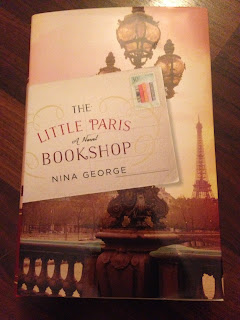If anyone missed the announcements, Mr. Conroy writes stories about the perennial outsider. Whether the focus is on a Marine's family readjusting to a new environment or the English Major in a military college, his people don't think they fit in the orderly pattern that makes up their world. Because they don't fit, Outsiders tend to stay on the defensive. The first lesson in The Prince of Tides is how defending yourself can cost you everything you care for in life.
Tom Wingo, the coach in The Prince of Tides has had good reason for living life in defense mode. As a son, he suffered under a physically abusive father and an emotionally manipulative mother. As a child of a poor family, he experienced the cold-hearted snobbery that exists in so many small towns. As an adult Southerner visiting New York, he now gets a lot of grief about his home. In response, he's learned to hide his feelings behind a wise-cracking persona. The problem is, that persona has walled him away from his wife and the children he loves. Tom is a miserable, isolated man, in danger of losing his family, when his sister's psychiatrist asks for his help in understanding the childhood traumas he and his sister repressed.
Silence was part of the pattern of their dysfunctional family, making it hard to uncover the truth. The silence their mother required meant no child could admit feeling pain or anger after being abused. Tom's sister, Savannah, kept her anger inside until she turned it against herself. Tom's anger simmers even in his humor, and it conflicts with his feelings of affection but that's because he still has something to learn.
The biggest lesson in The Prince of Tides is the necessity of forgiveness as a way for letting the anger go. If silence creates an emotional infection and honesty is the lance, then forgiveness is the medicine that allows an abscess to heal. Forgiveness doesn't mean forgetting some people are dangerous or giving them carte-blanche to cause more damage, but it does mean the victim is no longer a hostage to injuries or pain they endured long ago. Forgiveness means living in the present and future by letting go of the sins in the past.
I haven't spoken of the lyrical beauty in this book's prose or the riveting plot and dialogue. I should because I was swept away by these. I haven't spoken about the brilliance or "deep Southern magic" that's present on every page. I haven't spoken about a great many things that make The Prince of Tides a wonderful book. Instead, I'll say that the book came along at just the right time for me. For a year, The Prince of Tides became the book I needed until I started to absorb its lessons. It was the book that helped me understand a conflicted past didn't have to dictate the future. That lesson changed my life for good.













